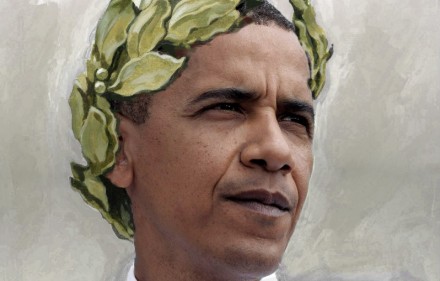See other Neocon Nuttery Articles
Title: The Neocon/Liberal Empire (vs Libertarian Nationalism)
Source:
Ex-Army
URL Source: http://ex-army.blogspot.com/2012/02/neoconliberal-empire.html
Published: Feb 03, 2012
Author: Ex-Army
Post Date: 2013-02-24 22:45:14 by hondo68
Keywords: None
Views: 91

The difference between neocons and liberals is one of emphasis. Both groups believe in all the same things. Big government at home, more and more intrusive all the time, open borders (neocons like illegal aliens for their cheap labor, liberals like them because they help expand the welfare state), and empire abroad, with our money and troops being used to remake a reluctant world over into their vision of the future.
American voters are asked to choose between the basically identical programs of the Democrats, dominated by liberals, and the Republicans, dominated by neocons. Now, the rhetoric differs somewhat. Democrats like to talk about peace and freedom, while Republicans talk about freedom and peace. Both agree about peace — they define it as preemptive invasions of just about everybody, our troops spread out all over the world, and a foreign policy designed to destabilize any country that doesn't allow Goldman-Sachs to move in and tell everybody what to do. The difference is that Democrats are more likely to say they're helping the people they invade, while the Republicans like to say that they're fighting over there so we won't have to fight over here. They're both wrong, of course.
And they're also both wrong about freedom. Both think freedom is best achieved by increasing the power of government and regulating everything from guns to restaurant menus. They agree that somehow, the voters are too dumb to run their own lives, but are perfectly capable of electing politicians to run their lives for them. This thinking is encouraged by importing heaps of immigrants from the Third World, many of whom are too dumb to run their own lives.
But there's a new movement coalescing that is neither fish nor fowl. It's hard to say when it started. You can go back further than the Goldwater movement, but within my lifetime, that was the first manifestation of a general revolt against the idea of increasing intrusive government at home and empire building abroad. It failed, but it certainly started something. Next was George Wallace, a flawed character who nevertheless embodied Americans' discontent with those same things. And that was followed by Nixon's "Silent Majority" which he talked about but didn't listen to. Then we had the Reagan thing, which had promise, but came to be dominated by neocon defectors from the Democrats. The next stage was the Pat Buchanan candidacy, which unfortunately couldn't overcome the Bush bulldozer.
And then we had the Tea Party. The Tea Party people know that the government takes too much of their money and orders them around too much, but they're unfortunately divided on the empire question. They've listened to too much propaganda from both the neocon fish and the liberal fowl. (Shall we call them "foul fish"? Sure.) Well, the foul fish have convinced too many of them that there's some kind of huge threat from the primitive Islamic world, and have opened the borders so we can have enough trouble-making immigrants from there to scare the voters into agreeing to go over there to fight them.
But a lot of Tea Party types are catching on that they've been had. A lot of them are turning into what I call "Libertarian Nationalists" — Believers in freedom and liberty at home, and non-interference with other nations. You know, like we used to be before Woodrow Wilson and his ilk decided that our destiny was to remake the world. This way of thinking is being reborn all over the country, and is variously called "paleoconservatism," "traditional conservatism," and, my favorite, "Libertarian Nationalism."
The current visible manifestation of this movement is, of course, the Ron Paul candidacy, and it may be the tipping point, where those of us who want a limited-government republic back finally get the connection that such a thing is incompatible with empire. People who like Ron Paul's domestic message are starting to think that if he's so right about all that, he just maybe might be right about foreign policy, too. This phenomenon is described clearly by Pat Buchanan HERE.
(1 image)
Post Comment Private Reply Ignore Thread